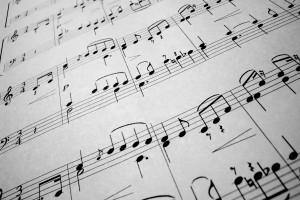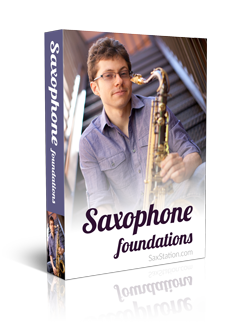Fakebooks! Godsend or plague to musicians?
Casa Valdez recently had a post with included a masterclass by Joe Henderson. One thing he got asked about was fakebooks. Made me think about the issue a bit.
I love Joe Henderson’s sound and feel a bit more connected to his style of teaching actually since he taught two of my saxophone teachers. Definitely respect his opinion.
Basically, he said that as he learned music, the fakebook phenomena did not exist. They were not an option. So he learned songs by listening to them.
When he attended music classes and they were learning basic musical ideas by ear, these things were simple for him since he had already transcribed bebop.
If you really listen, what you get out of learning music by ear far exceeds what can be written on paper (not even going into the shoddy quality of some fakebooks).
Joe Henderson did say that fakebooks can be a useful tool and that he wouldn’t tell a musician not to get what he or she can out of them.
A mathematician or physicist can derive equations from fundamental ideas.
For example the quadratic formula can be derived without too much effort, it just takes a minute.
A quadratic formula looks like
ax2 + bx + c
For example,
x2 + 4x + 4
It looks like a parabola on a graph.
It’s useful to know where the two points crosses the horizontal axis where y = 0. So there is a formula that does that for you.
In this, it’s easy enough to factor it or graph it and look at what the answer is.
Or you could plug it into the quadratic formula.
If it was 0.435x2 – 3.264x – 0.6, you can’t factor it or solve it immediately.
In this case, you often look up a formula. The quadratic formula in this case.
If you couldn’t look it up, you have to start with the general form and set it equal to zero.
ax2 + bx + c = 0
Starting here, you want an expression for x
If you have done a monkey load of mathematics and physics like I have, you learn ‘tricks’. You learn ‘tricks’ in transcribing and become more comfortable as you transcribe more too.
The steps I would take are:
ax2 + bx + c = 0
ax2 + bx = -c
(subtracting c from both sides of the equation)
x2 + (b/a)x = -c/a
(dividing everything by a)
x2 + (b/a)x + (b/2a)2 = -c/a + (b/2a)2
(adding (b/2a)2 to both sides)
x = +– sqrt( -c/a + (b/2a)2)
(taking the square root of both sides)
After cleaning it up a little bit, you get
That took some time though, and you could have just looked it up.
If you’re bad at math or even rusty, you probably want to look it up.
Even if you’re good at math, you probably want to look it up (if you don’t have it memorized).
A fakebook lets you look things up and not start at the beginning.
Unlike a mathematical formula, a song in a facebook won’t necessarily be that accurate. But it is a starting point, you don’t have to do everything yourself.
The wrong way to use a fakebook is to learn a song without listening to it and read it exactly as it’s written on the page. Don’t do that!!
There’s also the issue of legality and whether the composer gets paid for the work.
Many newer books, like the ‘new real book’, etc, are legal. And some fakebooks have a lot higher quality than those first fakebooks that came onto the scene years ago.
Saw a book called ‘the real easy book’ that includes basslines, listening suggestions, and more. Far beyond a poorly written fakebook. But that book also has limitations.
My advice is to get a fakebook or two, they’ll give you a headstart in learning some songs. And as you learn more songs, the process of learning them will become easier.
Saw that there’s a sale on fake books right now too. 20% off at sheet music plus.
Just don’t rely on it too much!
Remember to listen. That’s what music is about.
Congratulations for making it through the post! A bit of a not mainstream comparison, thought it might be a useful one.
What do you think about fakebooks? (and/or equation derivation, haha) Leave a comment!




Be sure to get your Fakebooks in Concert pitch.
1. It’s very useful to be able to read in concert pitch, especially when you have to read a tune on a gig over the shoulder of the piano player.
2. You should play on piano all of the tunes you learn. Do this:
(a) play rudimentary 3-note voicings (bass in left hand, color tones in right)
(b) attempt to sing the melody—on pitch—with your chord changes
(c) try this in a few different keys on any given tune
This oughta keep anyone busy for a while. And it will have TREMENDOUS effects on your internalized—not just intellectualized—understanding of harmony.
my two cents, no extra charge. 🙂
~ Rick
Great article, and great comment Rick! The best part to me about learning tunes this way is the amazing ear training it provides. It also brings to mind a quote by James Moody that went something like, “If you don’t know it in all 12 keys, then you don’t know it.”
Thanks Doron. James Moody did know what he was talking about.
Thanks for your tips, it’s easier to find fakebooks in concert pitch too.